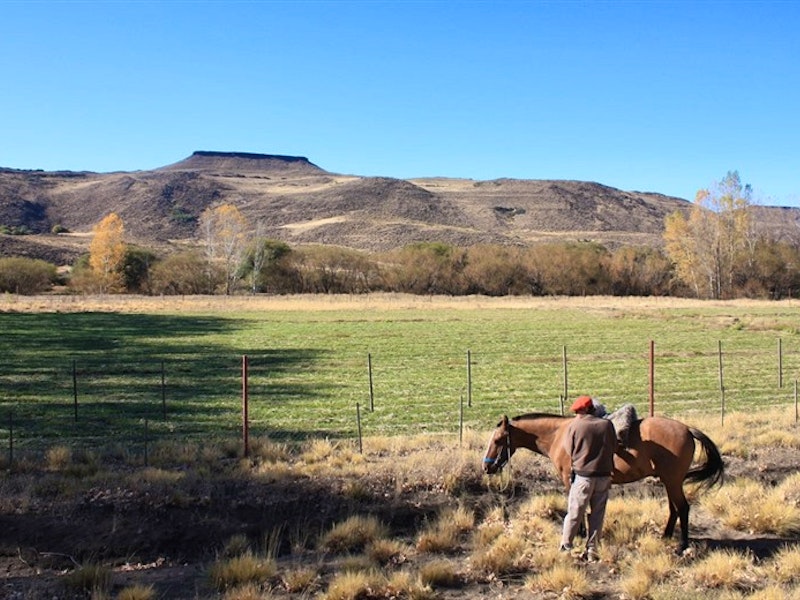
A gaucho for the weekend: life on the estancia in Argentina
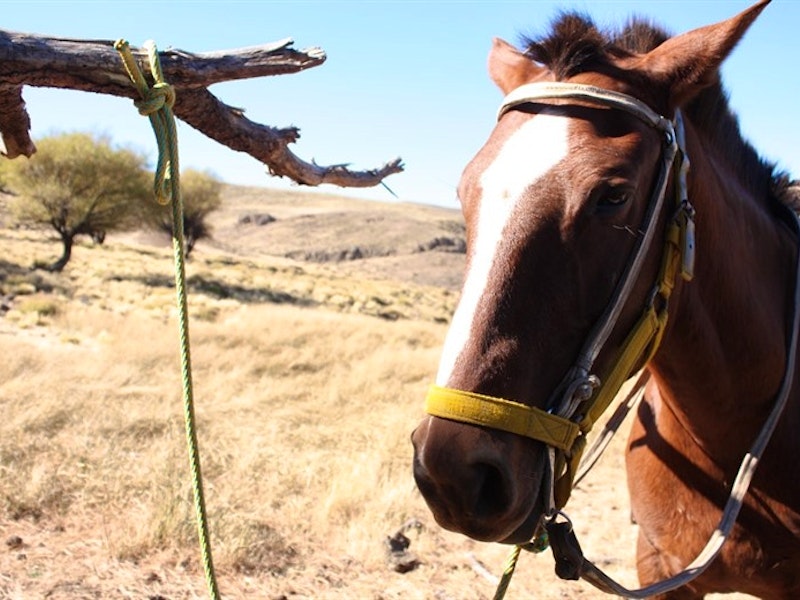

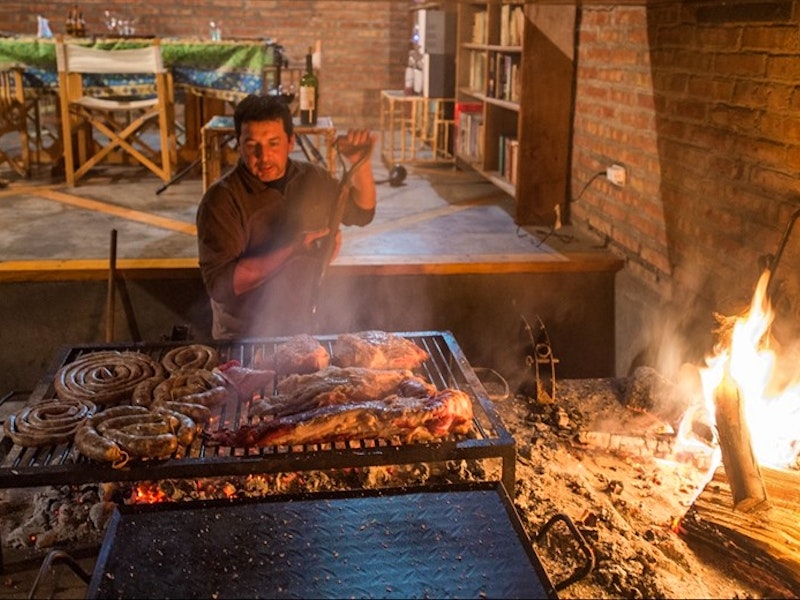

In April, the nights are dark and bitterly cold, while the sun warms the days akin to the temperatures of a good British summer. We rested our weary muscles on the terrace, a glass of malbec in hand, watching the setting sun gently painting the estancia hills first golden, then dark orange. The evening chill was soon forgotten when the call came for dinner. The ‘dining room’ includes a sunken region of the floor that houses a huge indoor barbecue, on which an entire half-cow was sizzling. As we sat to eat, said hunk of meat was carved into individual-sized steaks and the mouthwatering slices were passed around on a thick, wooden slab.

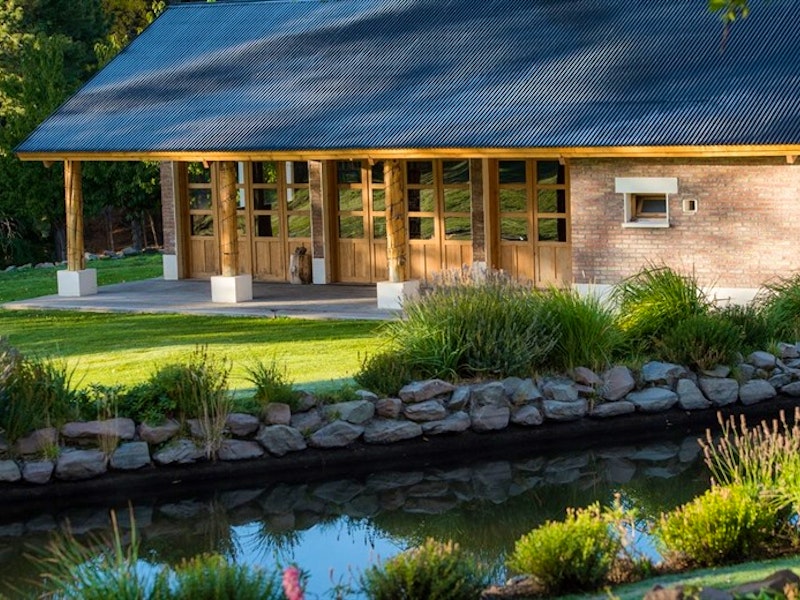

'The cows need moving to their winter fields tomorrow morning. Confident riders can help out after breakfast.' Jane, owner and all-round estancia boss, announced across the table. I had spared a rare moment when my mouth wasn't occupied with steak or Malbec to volunteer my services. Usually Jane accompanies rides, but during my visit she was recovering from breaking her leg: a ski accident left her striding determinedly around the ranch on crutches.
Jane herself is an inspiring woman to meet. Originally from the UK, she met her husband, whose family owned Estancia Huechahue, at university in Bristol and moved to Argentina to run the estate with him. On the surface she's an intimidating character; the strong and silent type, firm and resilient but fair. Soon she warmed to us - perhaps the Malbec helped - and her eyes glinted as we coax a few prized stories out of her. She personally led some of the first ever cross-country rides, travelling with a small group across Chile and Argentina from coast to coast on horseback.
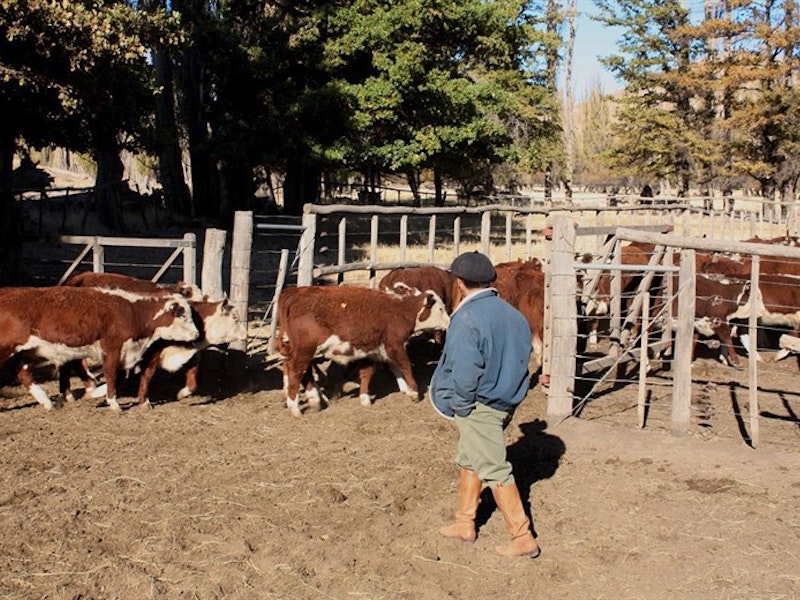

'The cows need moving: confident riders can help out after breakfast.'

The following morning, an early breakfast readied the group for our first attempts at helping out the professional gauchos. As I climbed into the saddle - my legs blissfully un-aching - I was excited about the challenges the day would bring, though slightly concerned that I could be a hindrance rather than a help. We rode through the farm to reach the cattle.
First Domingo, with the content smile and weathered face of someone who has spent their life in the open air, entered the cow pen. Within minutes, working as one unit with his horse, he had expertly separated the bulls from the rest of the herd.


